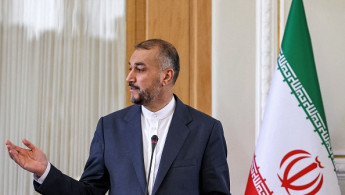US says Iran-based Saif al-Adel is new Al-Qaeda chief
Saif al-Adel, an Iran-based Egyptian, has become the head of Al-Qaeda following the July 2022 death of Ayman al-Zawahiri, the US State Department said Wednesday.
"Our assessment aligns with that of the UN -- that Al-Qaeda's new de facto leader Saif al-Adel is based in Iran," a state department spokesperson said.
Iran's Foreign Minister Hossein Amir-Abdollahian responded by denouncing Washington for publishing "misinformation about the leader of Al-Qaeda", and dismissing the link to his country as "laughable".
"The creators of Al-Qaeda and ISIS (the Islamic State group) are responsible for the growth of terrorism around the world" he tweeted, alluding to the United States.
A United Nations report released Tuesday said that the predominant view of member states is that Adel is now the group's leader, "representing continuity for now."
But the group has not formally declared him "emir" because of sensitivity to the concerns of the Taliban authorities in Afghanistan, who haven't wanted to acknowledge that Zawahiri was killed by a US rocket in a home in Kabul last year, according to the UN report.
In addition, the UN report said, the Sunni Islamist Al-Qaeda is sensitive to the issue of Adel residing in largely Shiite Iran.
"His location raises questions that have a bearing on Al-Qaeda's ambitions to assert leadership of a global movement in the face of challenges from ISIL," the UN report said, referring to another name for the rival Islamic State group.
Adel, 62, is a former Egyptian special forces lieutenant-colonel and figure in the old guard of Al-Qaeda.
He helped build the group's operational capacity and trained some of the hijackers who took part in the September 11, 2001 attack on the United States, according to the US Counter Extremism Project.
He has been in Iran since 2002 or 2003, at first under house arrest but later free enough to make trips to Pakistan, according to Ali Soufan, a former FBI counter-terrorism investigator.
"Saif is one of the most experienced professional soldiers in the worldwide jihadi movement, and his body bears the scars of battle," Soufan wrote in a 2021 article for the West Point Combating Terrorism Center's CTC Journal.
"When he acts, he does so with ruthless efficiency," he said.





 Follow the Middle East's top stories in English at The New Arab on Google News
Follow the Middle East's top stories in English at The New Arab on Google News


